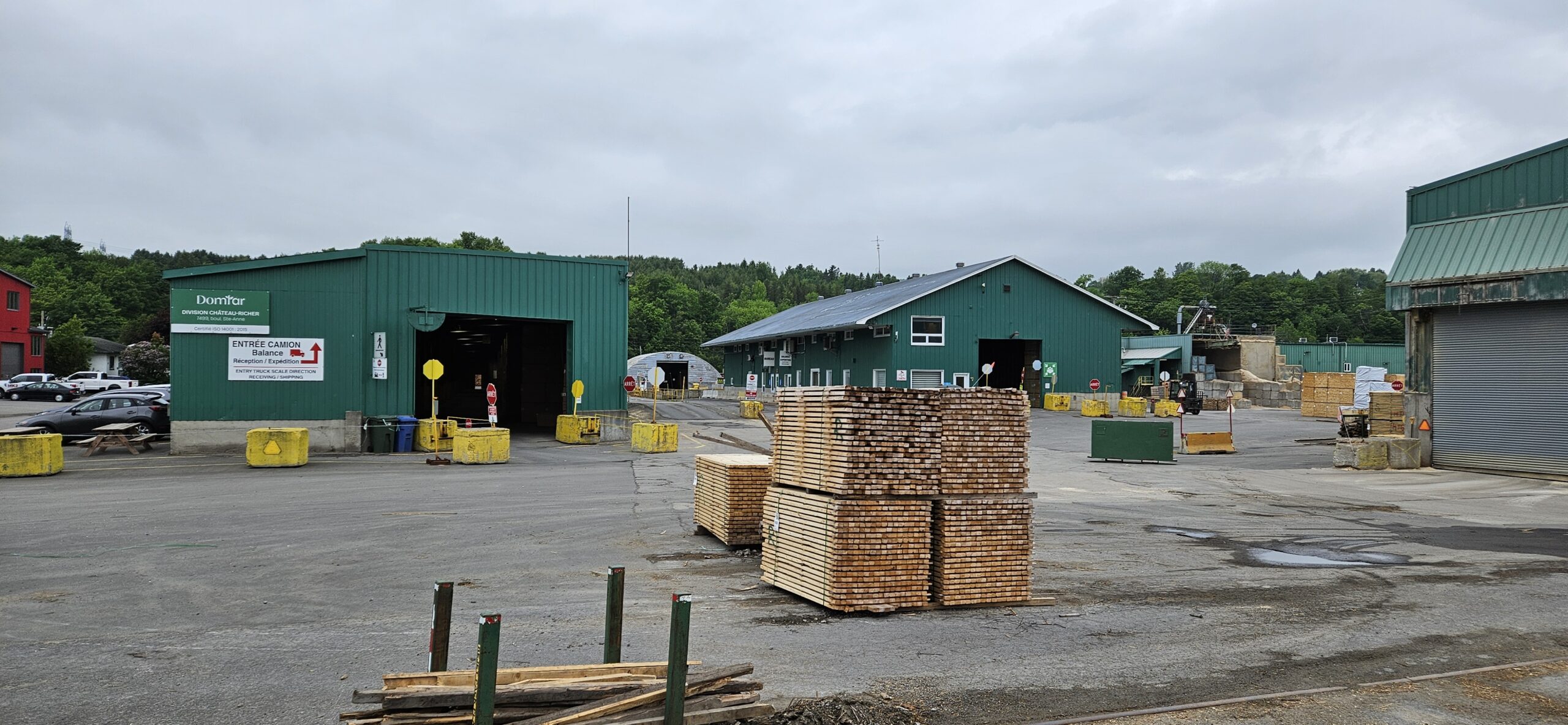At Domtar, we have launched a Lean Six Sigma program to apply a continuous improvement mindset to everything we do — and the efforts are paying off.
Through Lean Six Sigma projects and other continuous improvement initiatives, our teams have uncovered millions of dollars in efficiencies and process optimization savings across our manufacturing network.
“Lean Six Sigma is a statistically-driven methodology to help identify issues in processes that cause waste or variability,” says Continuous Improvement Manager Colby Cook. “It’s based on a questioning mindset that helps us optimize processes by ensuring that when we find something we can improve, we do it in a way that treats the root cause with structured and sustainable solutions.”
To date, 11 Domtar employees are Lean Six Sigma Black Belts. To achieve this, professionals attend two weeks of classroom training and pass a certification exam. Additionally, Black Belt candidates must complete a process improvement project at their location using the program’s fundamental tools, with oversight from a certified mentor.
One Black Belt project is yielding significant productivity benefits that can be replicated across our manufacturing network.
Lean Six Sigma Black Belt project optimizes wood chip acceptance rate to increase pulp production
Wood chips at many of our mills are cut to specific size parameters to properly feed the pulp digester to produce pulp or paper. Chips that don’t meet those specifications are sent to bark boilers or a chip sizer to be re-cut to the correct size. The more chips that enter the machine, the more fluff pulp that can be produced from a single load of wood.
Chad Rangnow, Domtar senior reliability manager, focused his Black Belt certification project on optimizing the Plymouth Mill’s wood chip acceptance rate. In doing so, he and the Plymouth team improved the facility’s chip acceptance rate by more than four percent.
“We worked directly with the mill to analyze every aspect of the chipping process,” Rangnow says. “We looked at how the chipper is set up and to what clearances, how often we perform routine knife changes to ensure the chipper produces a consistent size, and how often we take samples to be able to react to chip-size results.”
Increasing the chipper’s effectiveness has resulted in a more efficient cook in the digesters. Even after the project was complete, the woodyard team at the mill continued to improve the chipper equipment’s efficiency and has gained an additional four percent acceptance. These improvements have resulted in significant savings for the mill.
Rangnow’s project is now bringing awareness to chipper efficiency across our mill system.
“Chad’s project is a perfect example of Lean Six Sigma and continuous improvement in action,” says Senior Director of Performance Improvement Kathy Collins. “We’re now applying what we learned at Plymouth across our network. We currently have active chip optimization projects at our Rothschild, Marlboro and Windsor mills as a result of his work.”
In addition to ongoing Black Belt projects, Domtar has also started a Green Belt certification program to expand expertise at each of our mills.
“Our focus on Lean Six Sigma and continuous improvement is creating a lot of tangible benefits for Domtar,” Collins says. “We’re excited about applying these principles to processes at each of our facilities.”







